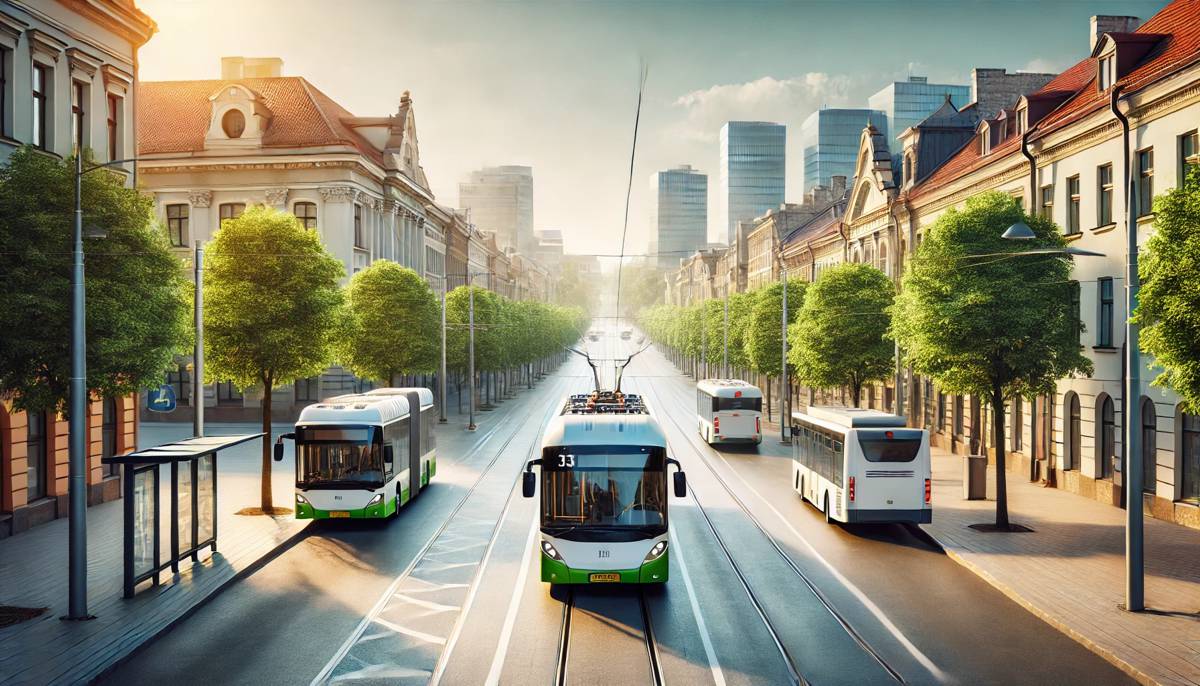Vilnius Accelerating Toward Greener Public Transport with EBRD Support
Vilnius, Lithuania’s vibrant capital, is taking bold strides towards sustainable urban transport with a significant investment in greener public transit.
Thanks to joint financing from the European Bank for Reconstruction and Development (EBRD) and the Nordic Investment Bank (NIB), the city’s public transport provider, Vilniaus Viešasis Transportas (VVT), is set to modernise its fleet with eco-friendly electric buses and trolleybuses.
In a major co-financing agreement, each institution is lending €40 million, bringing the total investment to €80 million. This ambitious project will see VVT acquire up to 73 new electric trolleybuses and 85 battery electric buses, a move that promises to redefine mobility in the Lithuanian capital.
Greener Transport: A Step Forward for Vilnius
The planned upgrades are more than just a fleet renewal—they represent a transformation in urban transport for Vilnius. The new electric trolleybuses, set to be operational by 2025, come with advanced features such as low floors for improved accessibility, climate control systems, and reduced noise levels. These enhancements will make public transport not only more sustainable but also more inclusive and user-friendly for people with mobility challenges and families with young children.
By introducing these state-of-the-art vehicles, VVT aims to cut greenhouse gas emissions by approximately 6,000 tonnes of CO2e annually. This initiative underscores the city’s commitment to achieving its climate goals while offering residents and visitors a cleaner, quieter, and more comfortable commuting experience.
Strategic Vision: Leaders Speak
Ignas Degutis, Director General of VVT, emphasised the significance of the investment: “Securing this financing is an important step in implementing the planned strategy for renewing the company-managed vehicle fleet. We plan to have a fully renewed trolleybus fleet by the end of 2026. So in two years’ time, we will be able to provide comfortable, convenient, and safe trolleybus journeys for citizens and visitors of the capital.”
Sue Barrett, EBRD’s Head of EMEA Infrastructure, echoed these sentiments: “We are pleased to deepen our partnership with the city of Vilnius, the first EBRD Green City in the Baltic States, as it leads the way in sustainable urban development. By expanding its green public transport network, the city will reduce emissions and create a cleaner, more liveable urban environment for its residents.”
Accelerating Lithuania’s Green Transition
Lithuania’s transport sector remains a major contributor to emissions. Vilius Girkontas, Senior Banker at NIB, highlighted the importance of this investment: “Transport remains one of the main emitters in Lithuania, and it is important to accelerate its green transition. The investments will not only support VVT’s shift to renewable energy and reduce its maintenance costs but will also make the journeys of Vilnius commuters much more comfortable.”
VVT’s long-term vision is ambitious. By 2030, the company plans to phase out diesel buses entirely, replacing them with a mix of electric and hydrogen-powered vehicles. This transition will help the organisation achieve its goal of reducing vehicle emissions to zero and relying exclusively on renewable energy.
Partners in Sustainability
The collaborative effort between EBRD and NIB is a testament to the shared commitment to sustainability. Both institutions bring a wealth of experience and resources to the table:
- EBRD: With over €1.7 billion invested in Lithuania across 138 projects, the EBRD is a key player in the nation’s development. Its investments are focused on fostering competitive, inclusive, and green economies.
- NIB: Operating in Lithuania since 1994, the NIB has provided around €1.8 billion in financing for over 115 projects. Its focus on public and private sector initiatives underscores its dedication to supporting sustainable growth.
A Public Transport Evolution
VVT, established in 2011, handles the daily transport needs of approximately 500,000 passengers. The company’s transformation is not just about modernising vehicles but also about creating a more efficient and environmentally friendly service that meets the evolving needs of Vilnius residents.
The planned upgrades align with Vilnius’ Green City Action Plan, a roadmap for sustainable urban development. By investing in greener public transport, the city is setting an example for others to follow, proving that sustainability and progress can go hand in hand.
A Cleaner, Brighter Future
Vilnius’ journey towards greener public transport is a shining example of what cities can achieve with visionary planning and strategic partnerships. With the support of the EBRD and NIB, the Lithuanian capital is paving the way for a cleaner, quieter, and more accessible urban environment.
This project is more than a fleet upgrade; it’s a declaration of intent—a promise to future generations that sustainability isn’t just a goal but a commitment to a better tomorrow.





























